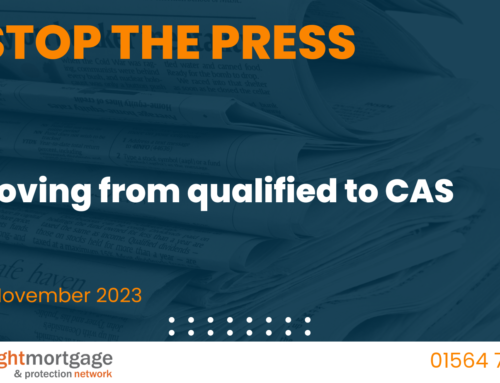Second charge packagers who are not operating as regulated firms are likely to have no intention of staying in the industry, according to specialist packager Y3S.
Firms operating in the second charge industry need to have the appropriate permissions by 21st March this year, but Matt Cottle, Joint Group CEO at Y3S, says firms who have yet to bring their policies in line with the mortgage credit directive (MCD) will stop offering regulated products.
Having been granted full authorisation in September last year, Matt told Loan Talk: “Every second charge loan packager should now be operating as a regulated business regardless of whether they have their authorisation or not.
“If they aren’t already doing what they should be doing they probably have no intention of doing so and they will eventually disappear, which is of course the reason for sensible regulation in the first place.”
Matt says the impact of MCD on second charge loan volumes remains to be quantified, and while firms could initially see a dip in business, he believes that the new regulatory environment may have the potential to unlock previously unreachable deals.
Matt added: “Some lenders are still tweaking their affordability rules to soften the impact, others are saying that they expect to be 40% down.
“Personally I expect there will be a drop in the short term while everyone gets used to the new world of regulation, and this should be worked into brokers’ projections, but nobody is really talking about what will happen in the medium to long term.
“From the hundreds of conversations we have with mortgage brokers each week, there is a massive pent up demand for second charge loans in the current system, largely because many brokers and almost all remortgage customers don’t know they exist.”
Because of the expected increase in business, it is crucial that lenders and brokers prepare their teams adequately.
Nicola Mooney, Head of Secured, Intermediary and Business Finance at Freedom Finance, said: “As the MCD steadily becomes implemented, the second-charge market will continue to develop and blend even further into the mainstream mortgage market.
“Second charge lenders and brokers have been able to apply for mortgage permissions since 2014 and therefore it is essential all brokers and lenders are familiar with secured loans and the compliance and regulation around these options.
“At Freedom Finance, 50% of our team are already CeMAP qualified, and we expect to be fully qualified ahead of 21st March when the regulation comes into force.”
Although many expect an increase in second charge business, it is believed it could be accompanied by a cut in brokers’ commission.
Specialist distributor TFC Homeloans is currently in the process of implementing the required regulatory changes ahead of the March deadline, after being granted Consumer Credit and Home Finance permissions last year.
Nigel Payne, Managing Director at TFC Homeloans, told Loan Talk: “With brokers required to tell their client about second charge loans as a remortgage alternative, a rise in overall business is certainly a possibility.
“There’s the potential for second charge rates to reduce as volumes increase and they are more routinely compared to remortgage options.
“If that happens then I wouldn’t be surprised to see commission to brokers cut accordingly.”





